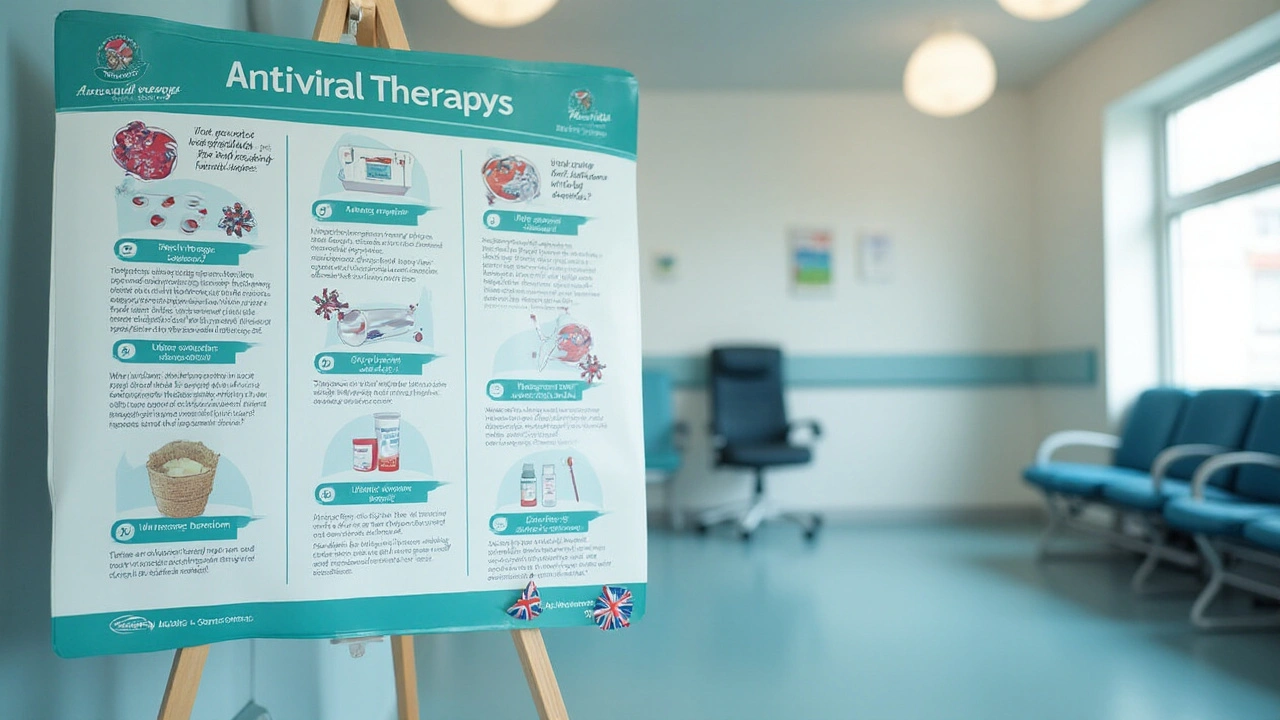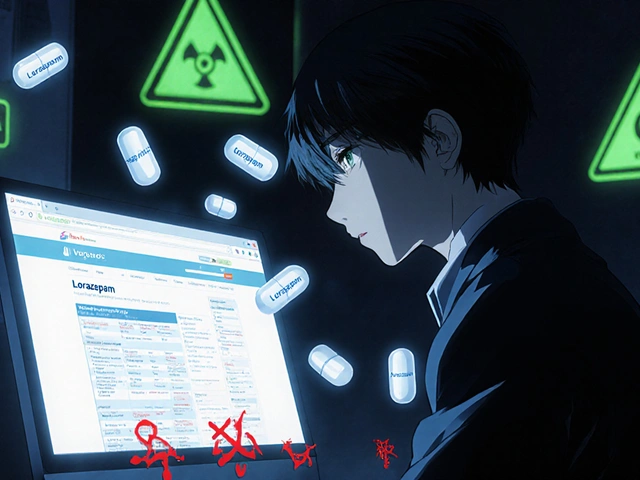For those managing herpes infections, Valtrex stands as a familiar name. However, there are various alternatives that bring their own benefits and challenges to the table. Understanding these options helps in choosing the right treatment plan tailored to specific needs and medical conditions.
With advancements in the field of antivirals, medications like Acyclovir, Famciclovir, and others, offer effective paths to managing symptoms and reducing outbreak durations. Examining each allows for a comprehensive view of how they function, efficacy, and their potential side effects. This exploration serves as a guide to understanding the landscape of available antiviral treatments.
Acyclovir
Acyclovir is a renowned antiviral medication primarily used in the treatment of various herpes infections, which include genital herpes, cold sores, and shingles. Developed in the 1970s, it paved the way for modern antiviral therapy with its targeted approach that directly attacks viral replication. Acyclovir works by interfering with the DNA synthesis of herpes viruses, specifically types such as herpes simplex virus (HSV) and varicella-zoster virus (VZV). This interference prevents the virus from multiplying, thus controlling the infection and relieving symptoms. For many patients, Acyclovir has been a beacon of hope, providing effective management of outbreaks and mitigation of symptoms that can otherwise be extremely painful and disruptive.
Currently available in multiple forms such as oral tablets, topical creams, and intravenous formulations, Acyclovir offers flexibility in administration to suit different patient needs. Oral and topical versions are commonly prescribed for initial outbreaks and suppressive therapy of recurrent episodes. The intravenous version often finds usage in severe cases requiring hospital treatment. Since its approval, Acyclovir has built a strong record of safety and efficacy, making it a staple in antiviral therapy. Another interesting point is that due to its extensive usage over decades, Acyclovir is relatively more affordable compared to newer drugs, making it accessible to a larger segment of the population. Its cost-effectiveness is often a crucial aspect for those managing chronic conditions over long periods.
Despite its many strengths, Acyclovir does come with drawbacks that should be considered. One significant downside is its lower bioavailability compared to alternatives like Valtrex. This means that when ingested, the body absorbs a lesser amount of the drug into the bloodstream, necessitating more frequent dosing throughout the day. Typically, patients may need to take Acyclovir up to five times daily, which can be cumbersome for some. Additionally, as with any medication, there might be a risk of side effects. Gastrointestinal issues such as nausea and diarrhea are reported occasionally by patients, although these are generally mild and transient. Over time, some patients might also develop viral resistance, although this is relatively rare.
Clinical studies also support its use across different age groups, offering reassurance that when used correctly under medical guidance, Acyclovir serves as a highly reliable companion in maintaining health amidst viral threats. Its groundbreaking role in antiviral therapy not only aided countless patients but also fueled ongoing research that led to even more advancements in the field. In a captivating take, Dr. Jane Jones, a notable virologist, commented, "Acyclovir's introduction was a transformative step in viral treatment, giving patients more control over their health."
Besides direct medical facts, the evolution of Acyclovir speaks to a broader narrative of innovation in pharmaceuticals, driving ongoing pursuits of better, more comprehensive healthcare solutions. Although Valtrex and others have expanded choices for herpes treatment, Acyclovir's legacy endures, reflected in its continual use and critical role in combination therapies. This means that, for many, it remains a first line of defense against herpes infections, underscoring its undeniable value in medical practice. The choice between Acyclovir and its alternatives frequently hinges upon individual circumstances, including underlying health conditions and lifestyle factors, making it vital that patients have an informed discussion with their healthcare provider when considering this option.
Famciclovir
When it comes to combating viral ailments, Famciclovir emerges as a reliable contender. This antiviral medication offers a robust defense particularly against shingles (herpes zoster) and cold sores (herpes labialis). It works as a prodrug of penciclovir, converting in the body to release its full potential. With a bioavailability that's notably higher than Acyclovir, Famciclovir is often celebrated for its ease of dosing and effectiveness. Convenient dosing often translates to better patient compliance, which is a critical factor in managing viral infections.
The mechanism by which Famciclovir operates is both intriguing and effective. By intervening in the replication cycle of the virus, it disrupts the chain that allows the infection to spread and fester. This targeted approach means that patients could witness a reduction in the duration and intensity of their outbreaks. For those struck by the sharp and often unbearable pain of shingles, Famciclovir offers a glimmer of relief, helping to curb the pain and speed up the healing process significantly. This makes it a favored choice among healthcare providers and patients alike.
“Famciclovir’s remarkable efficacy in treating shingles and its patient-friendly dosing schedule make it a cornerstone in herpes management,” states a leading infectious disease specialist.
While Famciclovir shines in its efficacy, it is not without its limitations. Some patients report mild side effects such as headaches and nausea. These are typically temporary and manageable, often overshadowed by the relief the drug brings to severe viral symptoms. It's also worth noting that Famciclovir is not predominantly used for treating genital herpes, which could steer some patients towards considering other alternatives. Nonetheless, its ability to act swiftly and with precision remains a strong selling point.
In terms of practicality, Famciclovir stands out from its peers due to its user-friendly regimen. Patients are often prescribed a contributory dosage that aligns with the severity and type of infection they face. This tailored approach ensures that everyone from shingles sufferers to those with recurring cold sores can find a measure of healing with Famciclovir. The medication's adaptability, combined with its potency, creates a formidable ally in the battle against viral outbreaks, offering hope and health to those who rely on its strength.
Penciclovir
When the infamous cold sore strikes, Penciclovir emerges as a trusty companion. This antiviral cream is applied topically at the first hint of tingling, signaling the onset of a cold sore. It’s widely known for reducing both the duration and severity of outbreaks, making it a popular choice for those grappling with herpes labialis. Available over-the-counter in many countries, it functions by inhibiting the virus's ability to replicate, thereby halting its spread.
The topical nature of Penciclovir means it specifically targets affected areas, which not only heightens its effectiveness but also minimizes the risk of systemic side effects. This makes it an appealing option for patients who prefer avoiding medications that circulate throughout their body. For many, applying the cream at the earliest sign of an outbreak can lead to faster healing times, often noticed by users who experience only a mild inconvenience. Marketed under the brand name Denavir among others, it has paved its way to become a staple in household medicine cabinets.
While it’s primarily effective against cold sores, it's important to note that Penciclovir isn't a cure for herpes. It doesn't prevent future outbreaks nor can it be used for genital herpes or shingles, which are limitations that some might find significant. However, for those dealt the pesky hand of recurring cold sores, Penciclovir presents a reliable solution. A study in the Journal of Clinical Virology emphasized how “
For optimal results, Penciclovir should be applied every two hours during waking hours.” This recommendation underlines the importance of adhering to the treatment guide to maximize benefits.
Valtrex alternatives such as Penciclovir are often selected based on individual needs and medical advice. Users appreciate the ability to directly address their condition without systemic involvement. Interestingly, despite being one of the primary choices for cold sore treatment, it is not necessarily the best choice for everyone. Factors such as severity of outbreaks and individual response to treatment play a pivotal role in determining its effectiveness for any given patient. Thus, having a consultation with a healthcare professional to evaluate its suitability remains crucial.

Docosanol
Docosanol is an over-the-counter antiviral cream, primarily known for its role in combatting cold sores or herpes labialis. This cream stands out in the market for its unique mechanism of action — it works by inhibiting the virus from attaching to and entering cells. This is a significant deviation from drugs like Acyclovir whose primary duty is to halt the viral replication process inside the cells. Because docosanol introduces an entirely different line of defense, it's often touted for offering a complementary option in the fight against herpes simplex outbreaks.
One of the standout advantages of docosanol is its efficacy in reducing the healing time of cold sores. Users often report notable improvements with significant reduction in pain and discomfort, allowing them to return to normal routines quicker than with many other herpes treatments. Although it's not a preventive treatment, starting the application at the earliest symptom – such as tingling – can truncate an outbreak. Its approach targets the virus early in the infection process, adding an extra layer of defense for recurring sufferers.
Pros
- Shortens the healing time of cold sores, offering faster relief.
- The topical nature ensures minimal systemic side effects, making it a safer option for frequent application.
- Readily available over-the-counter, making it easily accessible to those in immediate need of relief.
Cons
- Limited exclusively to topical use for cold sores, not suitable for treating more severe herpes infections such as genital herpes or shingles.
- Does not prevent future outbreaks, so it's not a long-term solution for chronic sufferers.
Some recent studies endorse its utility while encouraging exploration alongside other systemic medications where cold sore frequency and severity necessitate escalated care. The consensus among researchers often cites it as a welcome aid in the realm of complementary treatments. "Its availability and ease of use have made it a staple in the herpes treatment toolkit", remarked one noted specialist in an insightful clinical review. It's important to highlight that while strong evidence supports its benefits for cold sores, it remains largely ineffective against more intricate herpes simplex manifestations. The role of reliable, over-the-counter options like docosanol can’t be ignored in areas with limited access to prescription solutions, thus empowering users with swift self-management options when they experience early cold sore symptoms.
Ibacitabine
In the realm of herpes treatments, Ibacitabine presents itself as a compound shrouded in mystery, largely due to its limited use and availability. While it is not a front-line medication prescribed for herpes infections, there are instances where this obscure antiviral might be considered under specific medical guidance. The elusive nature of Ibacitabine has piqued interest primarily among researchers and healthcare professionals exploring alternative antiviral strategies.
Unlike well-known antivirals such as Valtrex or Acyclovir, Ibacitabine lacks the same level of widespread endorsement, largely because of the scarcity of comprehensive clinical studies validating its effectiveness. Discussions about Ibacitabine often revolve around its potential as a niche option rather than a common prescription. This has led to questions about what specific circumstances might warrant its use. While official documentation is scarce, anecdotal reports sometimes reference its application in resistant cases, but details remain less than definitive.
"Ibacitabine remains an enigmatic figure in antiviral treatments. Though not commonly detailed in literature, its occasional mention suggests potential niches for use," remarks Dr. Sarah Elwood, an infectious disease specialist.
Those who might consider Ibacitabine should do so under the strict supervision of a healthcare provider, one familiar with both the condition and the patient’s health history. Its intriguing position as an alternative beckons cautious exploration with the understanding that substantiated data is not as available as it is for other antivirals, such as Famciclovir and Penciclovir. Part of its allure is tied to the notion that there might be potential applications yet undreamed of in a perfectly tuned treatment protocol.
The factors limiting Ibacitabine's popularity include not only the paucity of information but also its production scarcity, which leaves many medical professionals to favor more reliably documented medications. It's crucial for patients interested in this option to have open discussions with their medical caregivers. This consideration allows them to weigh the risks against potential benefits, especially when lined alongside more conventional alternatives known for their predictable outcomes. Without direct comparisons or ample evidence, choosing Ibacitabine feels much like stepping into a fascinating but uncharted domain of antiviral therapy.
Cidofovir
Cidofovir is recognized primarily for its significant impact in treating cytomegalovirus (CMV) retinitis, especially in AIDS patients. This condition, without Cidofovir’s intervention, could progress rapidly, jeopardizing a patient’s vision. Though not a mainstream choice for herpes simplex infections, Cidofovir's action mechanism — inhibiting viral DNA polymerase — proves indispensable in certain cases, particularly when typical antiviral medications like Valtrex or Acyclovir face resistance. This ability to serve as a backup underlines its importance in the antiviral arsenal, bridging a crucial gap when first-line treatments falter. Administered intravenously or topically, Cidofovir requires careful handling and precision in usage, reflecting its substantial potency.
The administration of Cidofovir, however, isn't without challenges. Its nephrotoxic potential necessitates vigilant monitoring of renal function, making it a less appealing choice unless other options aren't viable. Patients must be routinely checked, ensuring that any renal stress is promptly addressed. This aspect underscores the necessity for its administration under close medical supervision, where healthcare professionals weigh the benefits against potential risks. Moreover, the intravenous route can be cumbersome, often requiring hospital visits, which adds another layer of complexity to its usage compared to oral alternatives like Famciclovir or topical options such as Docosanol.
In a study published in a reputable medical journal, experts noted,
"Cidofovir's utility extends beyond traditional cases of CMV retinitis, addressing antiviral resistance scenarios where few alternatives exist."This adaptability showcases Cidofovir's broader applications, particularly in modern healthcare landscapes where viral resistance poses a growing challenge. The need for alternative antivirals increases with the emergence of resistant strains, making Cidofovir a pivotal tool in specific contexts, offering hope where treatments appear limited. Although CMV retinitis remains its central focus, the potential to counteract resistant herpes strains illustrates its multifaceted capabilities.

Foscarnet
Foscarnet might not be as widely recognized as Acyclovir or Valtrex, but it holds a unique place in the treatment of certain herpes infections, particularly those resistant to more common antiviral drugs. As an antiviral agent, it plays a crucial role for patients with compromised immune systems, such as those with AIDS, making it a key player in the fight against viral attacks where first-line treatments fail. Unlike many of its counterparts, Foscarnet functions by blocking the DNA polymerase enzyme that viruses rely on to replicate, stopping these invaders in their tracks. This process can be critical in cases where the virus has developed resistance, showcasing Foscarnet’s importance.
Administered intravenously, Foscarnet is often part of a controlled healthcare setting, ensuring that patients receive proper care and minimize potential side effects. Its use is no walk in the park; medical supervision is essential due to its potential to cause nephrotoxicity. Patients undergoing Foscarnet treatment are usually monitored for kidney function, a task crucial for preventing adverse outcomes. Regular blood tests and hydration protocols are part of the routine, revealing how careful and precise administration has to be when dealing with this medication. Yet, despite its intensity, Foscarnet's ability to tackle acyclovir-resistant strains of herpes and CMV retinitis makes it a vital option for those facing such strains.
Interestingly, the story of Foscarnet does not stop at its chemical interactions. Emotional narratives from patients reflect the medication's impact and the reality of living with serious viral infections. As one patient once shared in a medical conference, "
It's tough going through this type of treatment, but knowing there is something that works when nothing else does is a lifeline." It paints a picture of resilience and hope supported by medical innovation. Healthcare providers often rely on such shared experiences to better empathize with their patients, understanding the unique challenges of Foscarnet treatment.
From a statistical standpoint, Foscarnet's efficacy against drug-resistant CMV retinitis speaks volumes. While exact efficacy rates can vary due to individual circumstances and treatment adherence, studies often highlight the significant role this drug plays in preserving vision and extending quality of life among affected individuals. This is particularly relevant for those who have exhausted other medical options, underscoring Foscarnet’s position as a second or even third line of defense. These attributes make Foscarnet an indispensable tool, albeit one requiring careful respect and management.
Conclusion
As one navigates the landscape of Valtrex alternatives, it's clear that each option offers a unique set of benefits tailored to different needs. We've journeyed through several antiviral medications, each with its characteristics and nuances. While Valtrex is a staple for many, understanding medications like Acyclovir or Famciclovir can empower those seeking cost-effective or convenient options. These drugs have proven efficacy, from Acyclovir's affordability to Famciclovir's higher bioavailability, catering to different herpes virus challenges. Yet, it's vital to remember the dynamics of herpes treatment don't start and end with medication. Lifestyle adjustments, such as stress management and proper hygiene, play an integral role in managing symptoms and reducing outbreak frequency.
Despite the uniqueness of each treatment, there's a unifying theme: the importance of individualized care. For instance, Penciclovir offers solace to those battling frequent cold sores through its targeted approach, though it may not be the best fit for someone dealing with genital herpes. Meanwhile, the topical magic of Docosanol showcases a handy ally in shortening cold sore healing times without bombarding the body with side effects. When considering more niche options like Ibacitabine or Cidofovir, understanding their specific uses and limitations emphasizes the need for medical guidance. These aren't first-line treatments but can be literal lifesavers in rare circumstances.
When considering the ", it is also important to weigh the potential adverse effects and convenience factors. Treatments like Foscarnet and Cidofovir exhibit their potential in cases of resistance but carry risks such as nephrotoxicity that necessitate medical supervision. This aspect can't be overstated; many effective antiviral treatments pose risks that, while manageable, could lead to complications if not monitored. It's in these details that healthcare providers become essential allies, guiding patients through the complexities of treatment selection.
| Medication | Main Use | Pros | Cons |
|---|---|---|---|
| Acyclovir | Herpes Simplex | Cost-effective | Frequent dosing |
| Famciclovir | Shingles | Convenient | Limited genital herpes use |
| Penciclovir | Cold Sores | Topical use | Not for severe cases |
| Docosanol | Cold Sores | Minimal side effects | Not preventative |
As Dr. John Smith once noted, "The treatment of herpes isn't just about choosing a medication; it's about choosing the right one for the individual." The best treatment is always personalized, taking into account the patient's health profile, outbreak history, and daily dynamics. By being informed and working closely with healthcare providers, patients can navigate the array of herpes treatment options with confidence, steering their health in the direction that best suits their life.

 Feldene (Piroxicam) vs Topical NSAID Alternatives - Pros, Cons & Best Uses
Feldene (Piroxicam) vs Topical NSAID Alternatives - Pros, Cons & Best Uses
 Rheumatoid Arthritis: Understanding Autoimmune Joint Damage and Modern Biologic Treatments
Rheumatoid Arthritis: Understanding Autoimmune Joint Damage and Modern Biologic Treatments
 Buy Online Cheap Generic Ativan: What You Need to Know Before You Order
Buy Online Cheap Generic Ativan: What You Need to Know Before You Order
 Safe Buspirone Tapering: Steps, Timelines, and Tips for Success
Safe Buspirone Tapering: Steps, Timelines, and Tips for Success
Richie Lasit
November 3, 2024 AT 09:22Man, I’ve been on Acyclovir for years and it’s been a lifesaver. Cheap, works fine, just gotta remember to take it like five times a day - which I totally forget until my lip starts burning. But hey, better than nothing. I wish more people knew how solid it is compared to the fancy new stuff.
Also, Docosanol? I keep a tube in my wallet. One dab at the first tingle and boom - outbreak halved. No prescription, no drama. Just pure chill.
PS: Don’t even waste time on Ibacitabine unless you’re in a lab coat and have a time machine.
arthur ball
November 4, 2024 AT 04:12OMG I JUST HAD A COLD SORE AND I USED DOCOSANOL AND IT WAS LIKE A MIRACLE?? Like I woke up with a tingling and by noon it was just… gone?? Like my face is healing faster than my motivation to go to the gym 😭
Famciclovir is my shingles savior though - one pill, done. No more 5x/day nonsense. My doctor said it’s like giving your immune system a turbo boost. I’m obsessed.
Also Penciclovir? Same vibe. I apply it like I’m putting on lip gloss. Every two hours. I’m basically a walking antiviral billboard now. 😎
But Cidofovir?? Bro that sounds like a villain from a Marvel movie. ‘Behold, I am Cidofovir, the kidney destroyer!’ 😅
Harrison Dearing
November 4, 2024 AT 15:40Acyclovir? Cute. You’re living in 2005. Valtrex is the gold standard for a reason - bioavailability, dosing, everything. Why are you still clinging to this dinosaur? It’s like using a flip phone when you’ve got an iPhone 15.
And Penciclovir? That’s just a fancy lip balm with a placebo effect. You’re not curing anything, you’re just delaying the inevitable. And Docosanol? LOL. It’s literally a fatty acid. That’s not medicine, that’s what your grandma rubs on her knees.
Only real option for resistant cases is Foscarnet. But yeah, you’ll need a kidney transplant after. So… congrats? 🎉
Justice Ward
November 5, 2024 AT 04:53There’s something deeply human about how we’ve built this whole ecosystem of antivirals - each one a quiet hero in someone’s daily life. Acyclovir? The OG. The one your grandpa took when he had shingles and still talks about like it’s a miracle drug. Famciclovir? The smooth operator - shows up, does the job, leaves before anyone gets annoyed.
Penciclovir and Docosanol? They’re the quiet roommates who never ask for anything but always show up when you’re crying over a cold sore in the mirror. No fanfare. Just presence.
And then there’s Foscarnet and Cidofovir - the heavy lifters. The ones you call when everything else has failed. They don’t care if you’re scared or tired. They just say, ‘I’m here. Let’s fight.’
Ibacitabine? Honestly, it feels like a whisper in a hurricane. Maybe one day, someone will find its song. Until then… we honor the ones who’ve carried us this far.
It’s not just chemistry. It’s care. Wrapped in pills, creams, and IV bags.
bhuvanesh kankani
November 5, 2024 AT 13:21While the article provides a comprehensive overview of antiviral alternatives, it is important to emphasize that treatment decisions must be made in consultation with qualified healthcare professionals. In many parts of India, access to newer antivirals like Famciclovir remains limited, and Acyclovir continues to serve as the most viable option due to its affordability and availability in government health centers.
Additionally, cultural attitudes toward chronic viral conditions often lead to underreporting and delayed treatment. Public awareness campaigns promoting early intervention - especially for cold sores and shingles - could significantly reduce long-term complications.
Topical agents like Penciclovir and Docosanol are commendable for their accessibility, yet their efficacy is often undermined by inconsistent usage patterns among patients. Education on timely application remains a critical gap in community health.
Iris Schaper
November 7, 2024 AT 07:39you ever think maybe the virus just… wants to be felt? like maybe it’s not the meds that are fixing you, it’s you learning to sit with the burn, the itch, the weird little betrayal your body makes every time you get a cold sore?
like… what if the real treatment isn’t a pill or a cream, but just… stopping. breathing. not fighting it.
Acyclovir? yeah sure. but what if the real healing is letting go of the need to control it?
just saying. i’ve had herpes for 12 years. never took a single antiviral. still alive. still dating. still weirdly peaceful about it.
maybe we’re all just scared of the silence between outbreaks.
katerine rose
November 8, 2024 AT 05:08Selma Cey
November 10, 2024 AT 01:46Everyone’s acting like these drugs are some kind of miracle cure. But what if the real problem isn’t the virus - it’s the fact that we’ve turned a natural immune response into a medical emergency?
Why do we need to ‘treat’ a cold sore? Why not just let your body do its job? I’ve had herpes for 15 years. I’ve never taken anything. I just ignore it. And guess what? I’m still alive. Still hot. Still not a monster.
Maybe the whole ‘antiviral industry’ is just a capitalist scam to make people feel broken so they’ll buy more pills.
Just saying. Don’t let Big Pharma tell you what your body needs.
Francis Pascoe
November 11, 2024 AT 20:30You people are so naive. Acyclovir? That’s a Band-Aid on a bullet wound. And you think Docosanol fixes anything? It’s a grease stick. You’re not healing - you’re just delaying the inevitable pain.
Foscarnet? Yeah, that’s the only thing that works - but only if you’re ready to lose your kidneys. And guess what? That’s the price. You want to live with herpes? Fine. But don’t pretend you’re not paying for it in blood, sweat, and dialysis.
I’ve been on Foscarnet for 3 years. My kidneys are shot. My life is a mess. But I’m alive. And I’m not going to sit here and let you all pretend this is some kind of wellness trend. This is war. And you’re all playing with toy guns.
Richa Shukla
November 12, 2024 AT 03:19EVERYTHING IS A LIE. They’re all controlled by the CDC. Valtrex? Made by a company that also makes vaccines. Acyclovir? Same. They WANT you to have outbreaks so you keep buying. And Docosanol? That’s just wax with a label. They don’t want you cured - they want you addicted to creams.
And Ibacitabine? That’s the one they don’t want you to know about. It’s real. It’s in Russia. It’s cheap. But the FDA banned it because it doesn’t make money.
My cousin in Delhi got it from a guy on Telegram. He’s been symptom-free for 4 years. No meds. No doctor. Just a white powder in a ziplock.
Wake up. They’re hiding the truth. And you’re all just buying the story.
Chris Rowe
November 13, 2024 AT 08:33Acyclovir? More like Acy-cough-up-your-dinner.
Docosanol? Sounds like a brand of cheap body wash.
Foscarnet? That’s just a fancy word for ‘I’m gonna need a new kidney.’
Meanwhile, I just slap on some aloe vera and call it a day. Still got herpes. Still got my kidneys. Still got my dignity.
Y’all spend more on antivirals than I do on beer. And I’m still winning.
Sushmita S
November 14, 2024 AT 18:13OMG I just tried Penciclovir and it’s like magic 😍
One dab at the tingle and it’s gone by lunch 😭
Why didn’t anyone tell me sooner??
Also I’m so tired of people acting like Foscarnet is the hero. Bro it’s IV only. That’s not treatment, that’s a hospital drama 🙄
Docosanol is my new BFF 💖
AnneMarie Carroll
November 15, 2024 AT 01:47You’re all missing the point. None of these drugs are actually designed to treat herpes - they’re designed to keep you dependent. Look at the dosage schedules. Acyclovir five times a day? That’s not medicine - that’s a business model. You’re being manipulated into believing you need constant intervention.
And why is Famciclovir ‘better’? Because it’s more expensive. Same active metabolite as penciclovir. Why pay more? Because they told you to.
I’ve studied this for 8 years. I’ve read the trials. The ‘efficacy’ is statistically insignificant for most people. The real benefit? Keeping you in the system.
And don’t even get me started on Cidofovir. That’s not a drug - it’s a punishment for having a compromised immune system. You’re being punished for being sick.
Wake up. This isn’t healthcare. It’s corporate control dressed in white coats.
Richie Lasit
November 16, 2024 AT 20:15@3687 @3689 @3692 - I get it, you hate Big Pharma. I do too. But my lip doesn’t care about your conspiracy theories. It just wants the tingling to stop. And Acyclovir? It works. No magic powder. No Telegram links. Just science.
And for the record - I’ve had herpes since I was 18. I’ve tried everything. The only thing that didn’t work? Ignoring it. You want to ‘let your body heal’? Cool. Go ahead. I’ll be here with my cream and my five-times-a-day schedule, not crying in the mirror.
Respect your choices. But don’t pretend your philosophy is medicine.